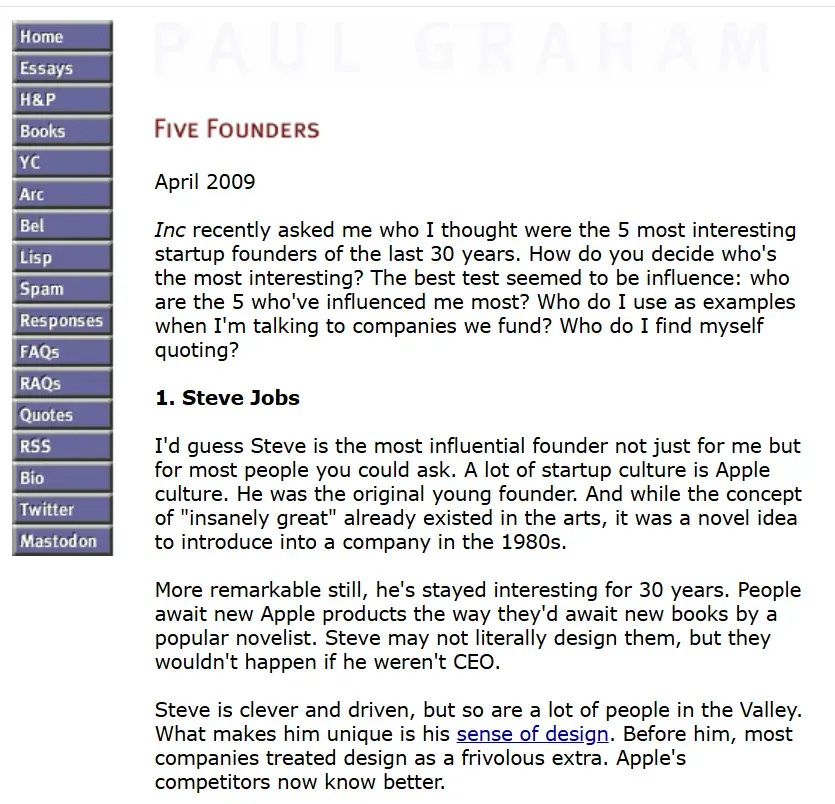What Makes an Exceptional Founder
Between idea and execution, user love and hubris, patterns and exceptions. An analysis.
This post is a little different from my usual Inside/VC posts. It's a collection of theses, loosely structured, designed not for comfortable reading, but for uncomfortable thinking. It leans more "philosophical" than my usual content and aims to provoke reflection on what truly defines an exceptional founder. I'd love to hear your thoughts in the comments.“Steve is clever and driven, but so are a lot of people in the Valley. What makes him unique is his sense of design.” – Paul Graham, Five Founders (2009)
This is precisely where Graham’s analysis comes in: good founders are not simply the smartest or the hardest working; there are plenty of those in the Valley. What sets them apart is that one distinctive trait that makes them stand out from the crowd: Jobs' sense of design, Rodgers' radical honesty, Larry & Sergey's belief in hacker excellence, Buchheit's focus on genuine user love, Altman's strategic ambition. For Graham, this unique selling point makes all the difference: founders who set new standards and thus change the culture of entire industries.
But this uniqueness does not contradict recurring patterns. Great founders are not a specific type, but they do display similar skills and behaviors: ingenuity, quick learning ability, deep customer understanding, discipline in dealing with focus and capital, the ability to win people over and shape culture, and the clarity to recognize whether to start a business alone or with a partner.
Graham sums it up in two words: → “relentless resourcefulness.”
The case of Adam Neumann shows just how difficult this balance can be. Sure, he is an exceptional talent when it comes to storytelling and fundraising. He turned a simple office rental business into “space as a service” and a global “we” movement. With this vision, he raised over $12 billion in capital and fascinated investors such as SoftBank & co. But while capital and attention flowed in, operational discipline and strategic clarity were sometimes lacking. WeWork expanded aggressively, burned through enormous sums of money, suffered from weak margins, and was characterized by chaotic governance. The high-flying $47 billion valuation ended in a crash: a disappointing IPO and ultimately temporary bankruptcy. Neumann thus raises a key question: Is it enough to be a brilliant fundraiser and visionary to be considered a “good” founder? Or is fundraising just the ticket, while true founder quality is evident in the product, customer loyalty, and disciplined execution? Or was Adam Neumann perhaps not a failed founder at all, but the most honest reflection of an investor culture that rewards hubris?



